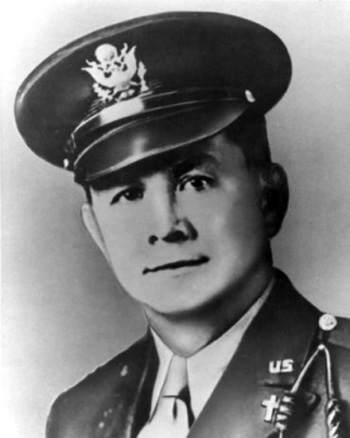
|
George L. Fox |
 |
|||
| Rank, Service | ||||
1st Lieutenant O-2, U.S. Army |
||||
| Veteran of: | ||||
|
||||
| Tribute: | ||||
George Fox was born on March 15, 1900, in Lewistown, Pennsylvania. He enlisted in the U.S. Army in 1917, and served as a medic on the Western Front during World War I. After the war, he was discharged and later became a Methodist minister. When World War II began, Fox joined the U.S. Army as a Chaplain. He attended Chaplain's School at Harvard University in 1942, and was traveling to Europe aboard the U.S. Army Transport Ship Dorchester when it was sunk by a German submarine on February 3, 1943. Fox and three other Army Chaplains died in the sinking and were later posthumously awarded the Distinguished Service Cross. In 1961, President Kennedy awarded the Four Chaplains' Medal to the families of each of the four Chaplains lost in the sinking. |
||||
|
||||

